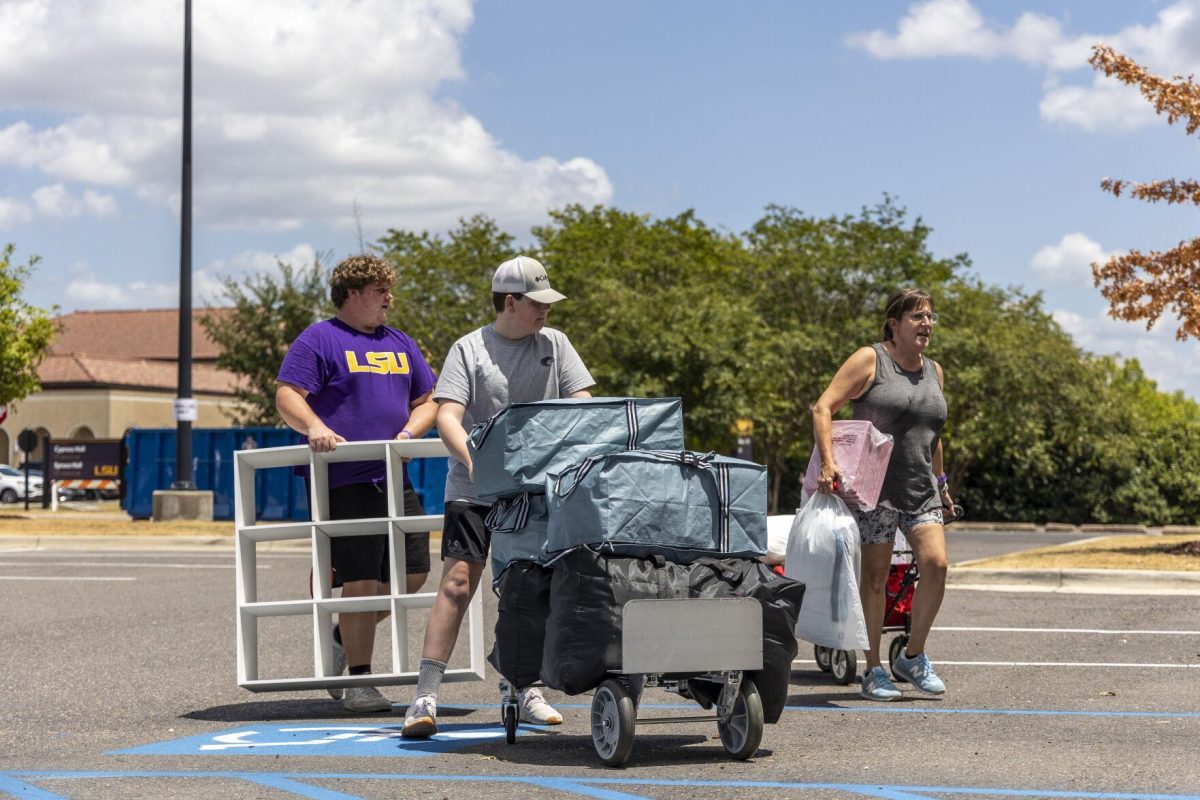In 2013, the nation has seen a significant rise in government assistance, technological breakthroughs and medical advancement.
With these resources in modern-day America, it’s hard to fathom the idea that residents are still going hungry. Men, women, families, students and even children struggle to feed themselves every day.
Hunger persists around the globe because of ignorance. Many people perceive hunger as a “third world” problem — not something in their own backyard. However, in south Louisiana, thousands of residents struggle to put dinner on the table.
The fight against hunger is still an open chapter in the U.S., especially in Louisiana. According to the U.S. Department of Agriculture, about 75,000 East Baton Rouge residents live in “food deserts,” or areas defined by poverty and poor access to supermarkets and large grocery stores. In addition, 39 percent of these residents live in poverty.
Unfortunately, University students aren’t an exception to the worldwide fight against hunger. For many, facing hunger is a harsh reality. Between tuition, books and rent, some students must skimp on food to make ends meet.
To combat student hunger, many on-campus organizations provide support.
Higher education graduate student and graduate assistant Mike Mosley Jr. organized a food pantry on campus this fall. Mosley said the food pantry provides students in need of assistance with food as long as they are currently enrolled at LSU and have a valid LSU student ID.
The LSU Food Pantry fuels a relaxing environment where students in need of food can come in at anytime and simply ask for food, no questions asked. The pantry is restocked weekly by donations from around the area.
“The [LSU] food pantry is a necessity for the University,” Mosley said. “If students’ main focus isn’t on school and rather on how they will find a way to eat everyday, then that’s a problem.”
This resource offers students access to food close to home.
LSU’s surrounding areas are also affected by food inaccessibility. Scott Burke, mechanical engineering major, noticed the effects of hunger in his community at a young age. Some classmates at Burke’s Baton Rouge elementary school did not have access to running water or adequate food outside of the school’s free breakfast and lunch program.
His classmates’ experiences prompted Burke to establish Kitchens on the Geaux. The volunteer based organization saves leftover food from local restaurants and donates it to 11 different Baton Rouge parish food shelters. Burke said he believes hunger in Baton Rouge revolves around “relative scarcity” because there is food supply in the area, but more often than not excess food is wasted.
Many efforts implemented in East Baton Rouge parish assist residents living in food deserts. East Baton Rouge Mayor-President Kip Holden’s office and Together Baton Rouge, a broad-based coalition of institutions in the Greater Baton Rouge area, launched a “Food Access Policy Commission” to address the ongoing food desert issue. The commission focuses on the causes behind food deserts in East Baton Rouge Parish, it analyzes what the best practices for attracting retail and other high-quality food providers to food desert communities and develops concrete policies and practice recommendations for the food desert communities.
Spreading awareness of the hunger issue is the only
answer.
“There are several volunteering initiatives for LSU students to fight hunger on and off campus,” Burke said. “Anyone can take part in the solution and actively spread
awareness.”
Saving Leftovers: Food Deserts in Baton Rouge
By Gabby Schick
November 11, 2013







